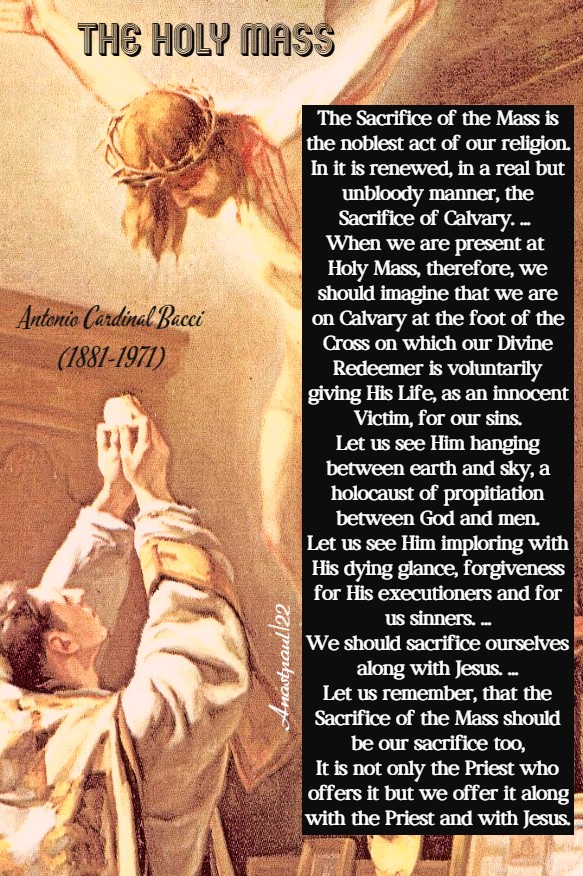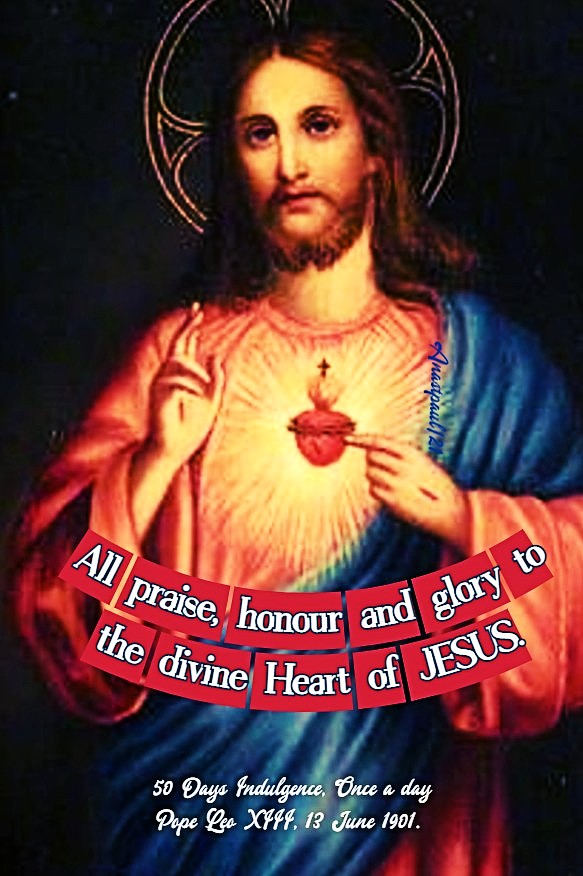Thought for the Day – 11 June – Meditations with Antonio Cardinal Bacci (1881-1971)
The Holy Mass
“The Sacrifice of the Mass is the noblest act of our religion.
In it is renewed, in a real but unbloody manner, the Sacrifice of Calvary.
Jesus desired to remain with us throughout the centuries in the Blessed Eucharist as our friend, comforter and spiritual food.
Similarly, not being satisfied with having shed His Precious Blood on the Cross for our Redemption, it was His wish that this sacrificial action should be renewed daily in every corner of the world, in such a way, that everyone could participate in it and benefit from it.
When we are present at Holy Mass, therefore, we should imagine that we are on Calvary at the foot of the Cross on which our Divine Redeemer is voluntarily giving His Life, as an innocent Victim, for our sins.
Let us see Him hanging between earth and sky, a holocaust of propitiation between God and men.
Let us see Him imploring with His dying glance, forgiveness for His executioners and for us sinners.
Let us imagine, moreover, His most Holy Mother as she gazes sorrowfully upon her suffering Son.
With love far greater than that of any other human creature, she offers herself in union with Jesus, for our salvation.
We should make a similar offering when we assist at the Sacrifice of the Altar.
We should sacrifice ourselves along with Jesus.
If we are tormented by sufferings, let us offer them up along with those of Jesus.
If we are troubled by passionate inclinations to sin, let us sacrifice these bravely, along with Jesus and for love of Him.
If we are full of hatred and coldness towards others, let us sacrifice these feelings for love of Jesus, Who forgave everyone who asked and repented and prayed even for His executioners.
Let us remember, that the Sacrifice of the Mass should be our sacrifice too,
It is not only the Priest who offers it but we offer it along with the Priest and with Jesus.
“Receive, O Holy Trinity, this oblation which we make to Thee.”
Let us unite the offering of our entire selves to the Sacrifice of Jesus and we sgall obtain great spiritual benefits.”


















You must be logged in to post a comment.